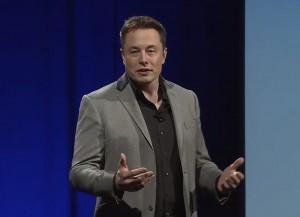With one death clearly linked to the semi-autonomous Autopilot system and investigations underway in connection with several other crashes, one fatal, battery-carmaker Tesla has found itself under the microscope. So has Mobileye, the Israeli tech start-up that has been providing the camera-on-a-chip system used on Tesla Model S and X battery-electric vehicles.
Following the revelation of the first fatal Autopilot crash, Tesla and Mobileye announced they were parting ways, and that separation is growing anything but amicable. The battery carmaker has said the Tel Aviv-based Mobileye “could not keep pace” with advances in autonomous technology. But Mobileye founder and CEO Amnon Shashua is now firing back in words that almost call out Tesla for being reckless.
The battery carmaker, he declared in an interview with the Reuters news service, has been “pushing the envelope in terms of safety” with its Autopilot system.
The spat marks one of the rare occasions when automakers and their suppliers disagree publicly. But it’s clear that both face significant risk if they were seen as being at fault for the problems with Tesla’s Autopilot system.
The battery-carmaker first released the technology in late 2015 in the form of a wireless software update. And though it stated that Autopilot was not a fully autonomous system, many owners quickly began posting blog reports and Youtube videos showing them driving hands-free for extended periods. Critics contend that Tesla CEO Elon Musk catches some of the blame for “over-hyping” Autopilot’s capabilities.
In July, Tesla revealed that a Model S sedan was involved in a crash in Florida on May 9 that took the life of 40-year-old ex-Navy SEAL Joshua Brown. The carmaker subsequently indicated that several factors appear to have contributed to the crash which occurred when Brown’s Model S struck a tractor trailer that had turned in front of it.
There is some evidence he may have been watching a video on his laptop computer rather than serving as a human backup, as Tesla recommends. Meanwhile, the car’s radar system mistook the truck for an overhead sign while the Mobileye camera, Tesla stated, confused the white trailer for the bright Florida sky.
Subsequently, two other crashes have occurred in which drivers are pointing at Autopilot, though Tesla claims the system was not operating in either case when the crashes occurred. A fourth crash actually predates all of those, a young Chinese driver killed when his vehicle smashed into a slow-moving street sweeper at highway speeds.
Tesla says the vehicle was too damaged to be able to tell if Autopilot was enabled at the time. But the video from a dashboard camera that survived suggests the vehicle was following the road and somehow failed to slow or swerve around the truck.
Autopilot “is not designed to cover all possible crash situations in a safe manner,” Mobileye chief Shashua said in his interview. “No matter how you spin it,” he added, the system “is not designed for that. It is a driver assistance system and not a driverless system.”
(Fatal crash in China focuses on use of Tesla’s Autopilot. Click Here for the story.)
Last weekend, Tesla CEO Musk announced that Tesla would soon issue a software update for Autopilot that he suggested could have prevented the Florida crash. Significantly, the revisions are meant to improve the ability of a Tesla vehicle’s radar to detect and assess risk. That would suggest that Tesla intends to downplay or even bypass the role of the Mobileye camera system on existing vehicles.
The automaker, meanwhile, is developing its own microcamera system for use on future products. And it contends that Mobileye only began to criticize Tesla once it learned of that plan.
The Israeli company “attempted to force Tesla to discontinue this development, pay them more and use their products in future hardware,” a spokesperson for the automaker told Reuters.
Losing Tesla as a customer is a relatively modest loss from a financial standpoint – though the battery-carmaker has laid out plans to grow sales tenfold from 2015 to 2018. Mobileye currently has 27 global automakers among its customers, a list that includes virtually every major manufacturer but Toyota. It has entered into even more advanced autonomous vehicle programs with several carmakers, including General Motors, Volkswagen and Nissan.
(Click Here for more about Tesla’s claim that European crash didn’t involve Autopilot.)
But catching blame for a major technical failure linked to one or more fatalities could seriously damage its cutting-edge image.
The same goes for Tesla, which has benefited from its following among green and tech-savvy car buyers.
Whether one or the other is implicated remains to be seen. Both the National Highway Traffic Safety Administration and the National Transportation Safety Board are conducting investigations in the U.S. And Chinese authorities have begun their own probe, while the family of the driver killed there are now suing Tesla.
(Delphi, MobilEye want to have autonomous vehicle system ready to roll by 2019. Click Here for more.)
A technical glitch could also tarnish the nascent field of autonomous driving systems even as automakers race to put the first fully hands-free vehicles on the road by early in the coming decade. Safety advocates content the technology will eventually yield major reductions in crashes, injuries and deaths. For his part, Tesla CEO Musk continues to claim that vehicles operating in Autopilot mode have a much better safety record than those being driven manually.

